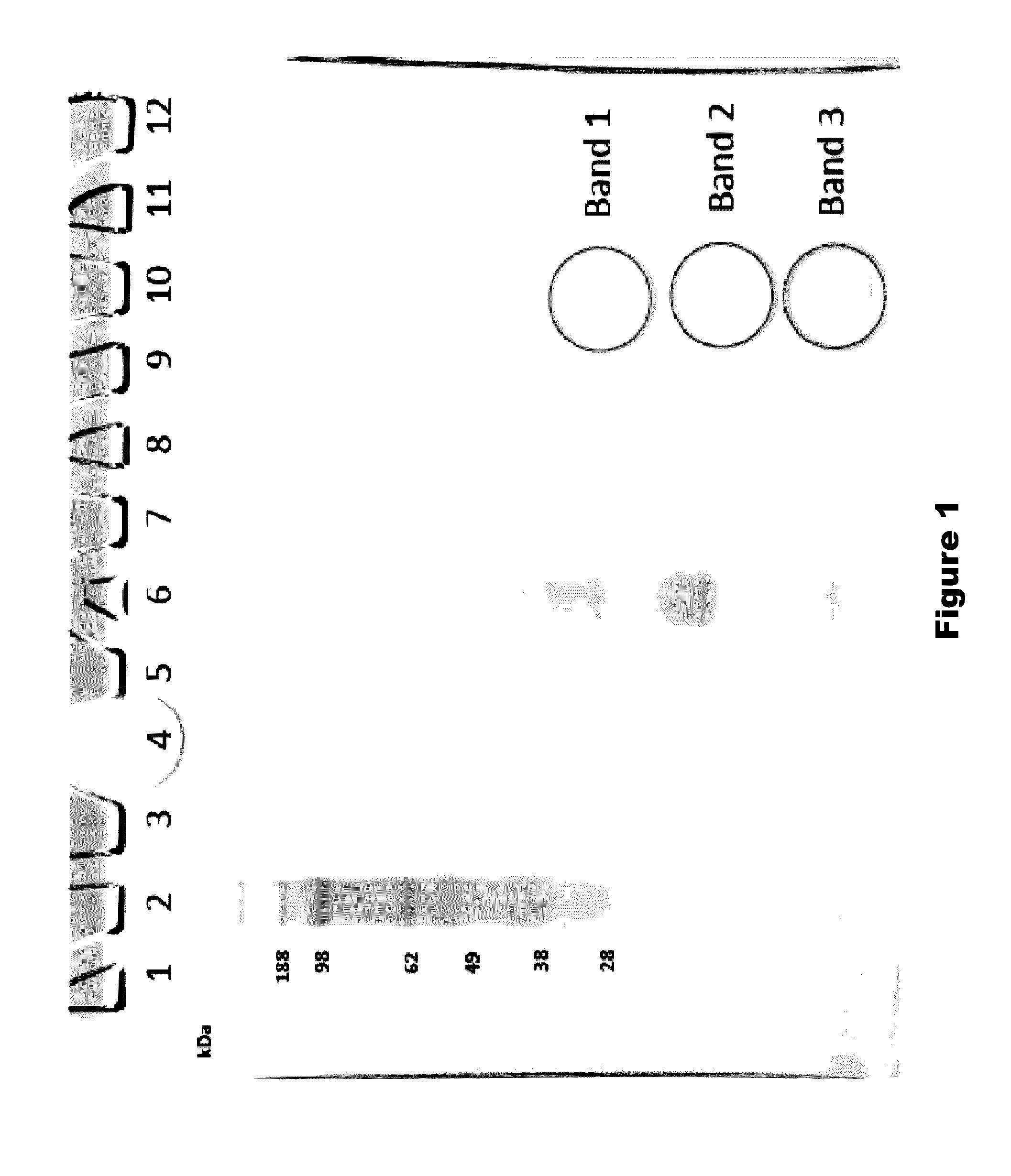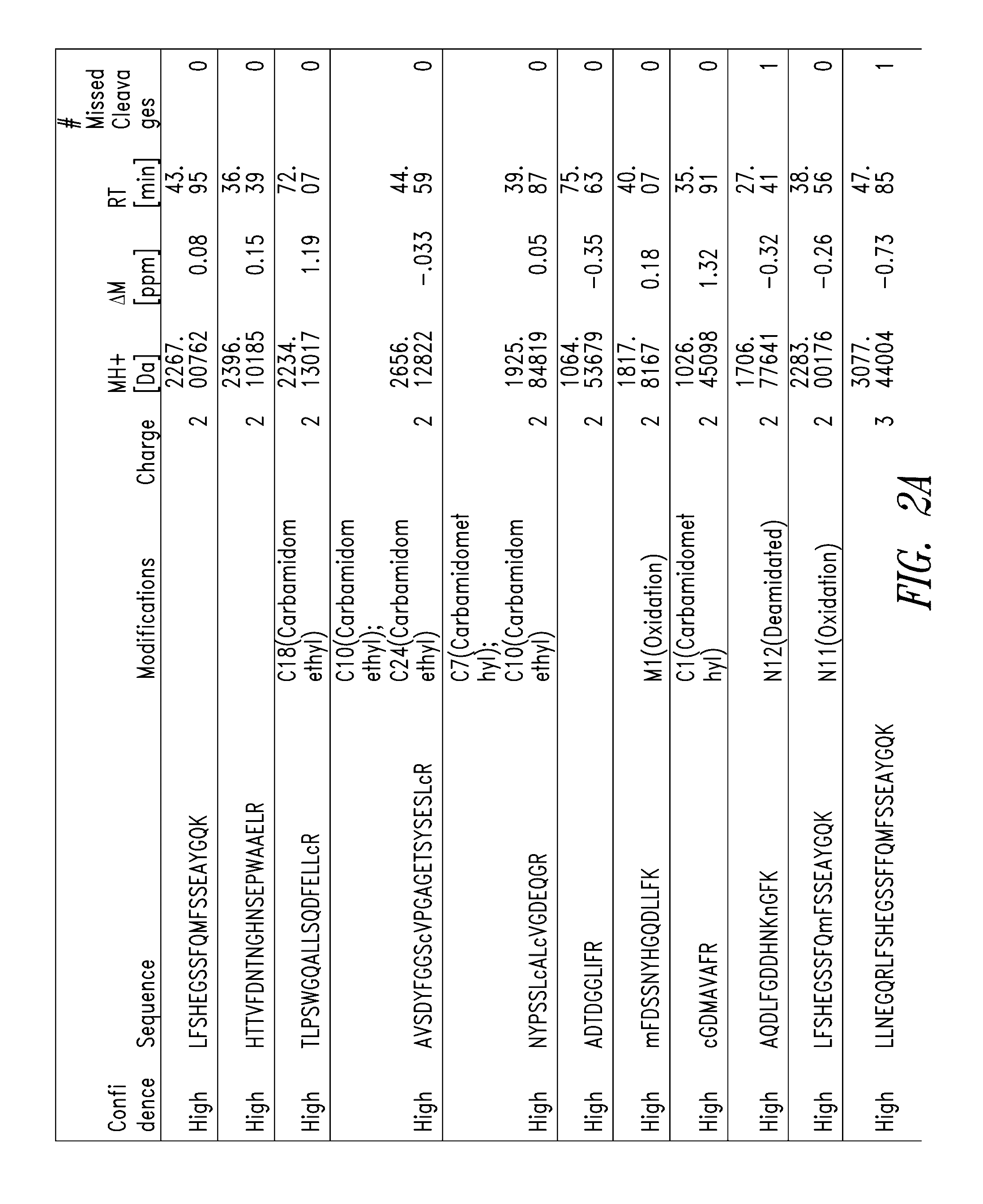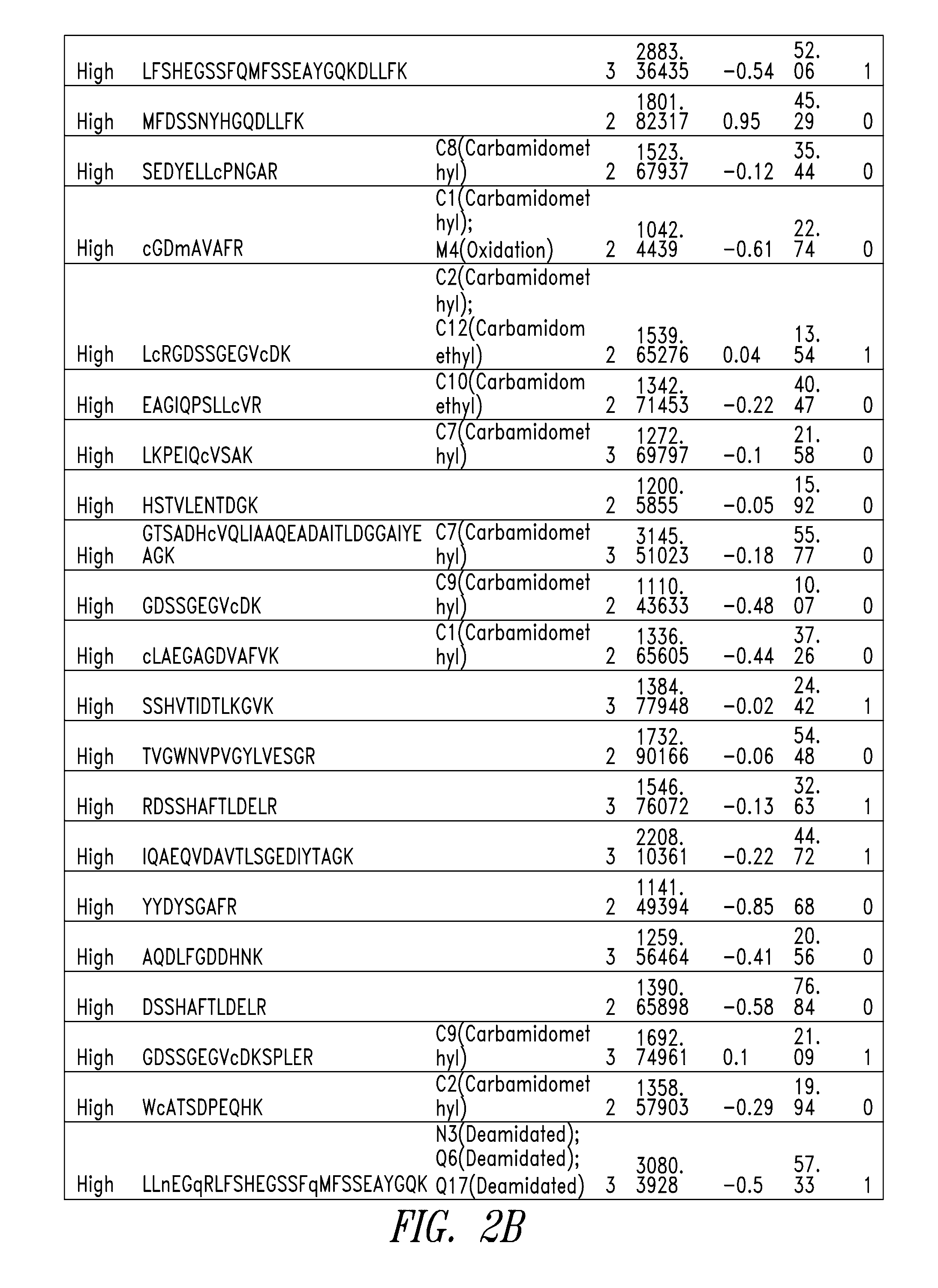Fragments of p97 and uses thereof
a technology of melanotransferrin and fragments, which is applied in the direction of transferrins, peptide/protein ingredients, immunological disorders, etc., can solve the problems that the therapeutic molecules and genes that might otherwise be effective in diagnosis and therapy do not cross the bbb in adequate amounts, and achieve the effect of reducing the cardiotoxicity of the agen
- Summary
- Abstract
- Description
- Claims
- Application Information
AI Technical Summary
Benefits of technology
Problems solved by technology
Method used
Image
Examples
example 1
Generation Fragments of Human Melanotransferrin (p97)
[0341]Scaled chemical and enzymatic digestions of human melanotransferrin (p97) were performed using cyanogen bromide (CNBr) and trypsin, to generate p97 fragments for testing in an in vitro model of blood-brain barrier (BBB) transport.
[0342]CNBr Digestion:
[0343]To a 500 μL protein sample of human p97 (10 mg / ml), 2.664 ml of 88% formic acid and 166.5 μL of 5 M CNBr in acetonitrile was added. The sample was vortexed, covered in aluminum foil, and incubated for 24 hours at room temperature in a chemical fume hood. To quench the reaction, 10 volumes of MS Grade Water was added. The digestion material was frozen at −80° C. and lyophilized overnight. The sample was stored at −20° C. until purification. Digestion material was re-solubilized in 5 mL 0.1% formic acid and purified using Sep-Pack C8 12 cc cartridges from Waters. The purified digestion material was frozen at −80° C. and lyophilized overnight. The lyophilized product was then...
example 2
Testing p97 Fragments in an In Vitro Model of the Blood Brain Barrier
[0351]Experiments were performed to evaluate the passage of mixtures of p97 peptide fragments across the blood-brain barrier (BBB) using a relevant and predictive BBB in vitro model (see Cecchelli et al., Adv. Drug Deliv. Rev. 36:165-178, 1999). The model utilizes brain capillary endothelial cells co-cultured with glial cells, to closely mimic the in vivo BBB (see Lundquist et al., Pharm. Res. 16:976-981, 2002).
[0352]Cell-Based Model of the BBB:
[0353]To provide an in vitro system for studying brain capillary functions, a process of co-culture that closely mimics the in vivo BBB was established by culturing brain capillary endothelial cells on one side of a filter and supportive glial cells on the other side. Specifically, endothelial cells were cultured in the upper compartment on the filter and glial cells in the lower compartment on the plastic of a six-wells plate (see FIGS. 7 and 8). Under these conditions, end...
example 3
p97 Fragment in an In Vivo Model of the Blood Brain Barrier
[0371]A p97 (Mtf) fragment (DSSHAFTLDELR; SEQ ID NO:13) was conjugated to a monoclonal antibody (mAb), administered peripherally to mice along with control proteins, and tested relative to the control proteins for distribution into brain tissues. For quantitative detection, all test proteins were labeled with Alexa Fluor 647 (AF647) according to routine techniques.
[0372]The following test proteins were prepared: AF647-labeled monoclonal antibody (mAb), AF647-labeled MTf-mAb conjugate (MTf-mAb; MTf is soluble human p97), AF647-labeled MTfPEP-mAb conjugate (MTfPEP-mAb; MTFPEP is the DSSHAFTLDELRYC (SEQ ID NO:92) fragment of human p97); and AF647-labeled MTf fragment without antibody (MTfPEP). The synthesis route of the MTf-mAb and MTfPEP-mAb conjugates is illustrated in FIG. 10.
[0373]The AF647-labeled test articles were administered to mice according to the study design in Table 8 below.
TABLE 8Study Design for Testing Brain Bi...
PUM
 Login to View More
Login to View More Abstract
Description
Claims
Application Information
 Login to View More
Login to View More - R&D
- Intellectual Property
- Life Sciences
- Materials
- Tech Scout
- Unparalleled Data Quality
- Higher Quality Content
- 60% Fewer Hallucinations
Browse by: Latest US Patents, China's latest patents, Technical Efficacy Thesaurus, Application Domain, Technology Topic, Popular Technical Reports.
© 2025 PatSnap. All rights reserved.Legal|Privacy policy|Modern Slavery Act Transparency Statement|Sitemap|About US| Contact US: help@patsnap.com



